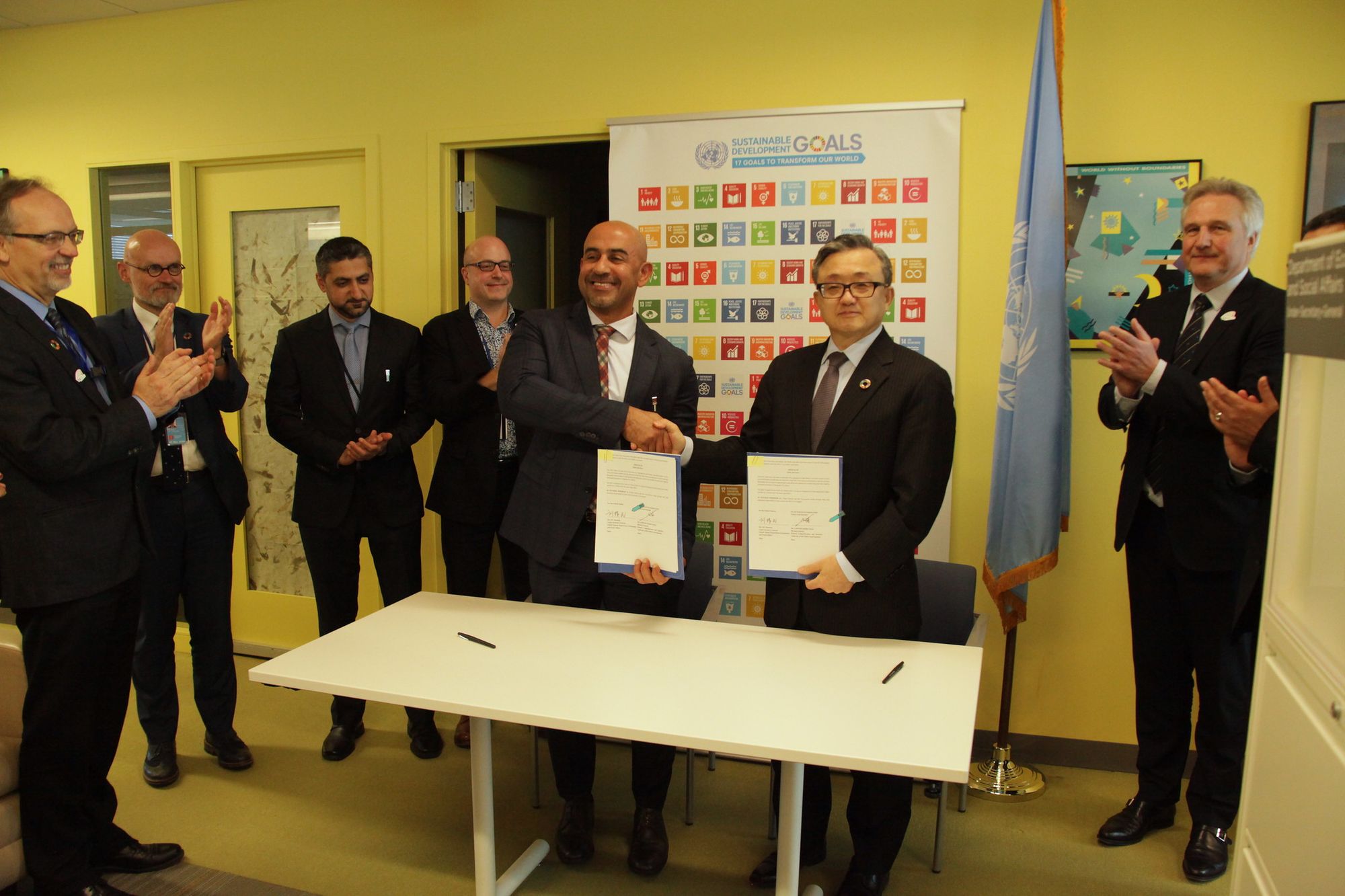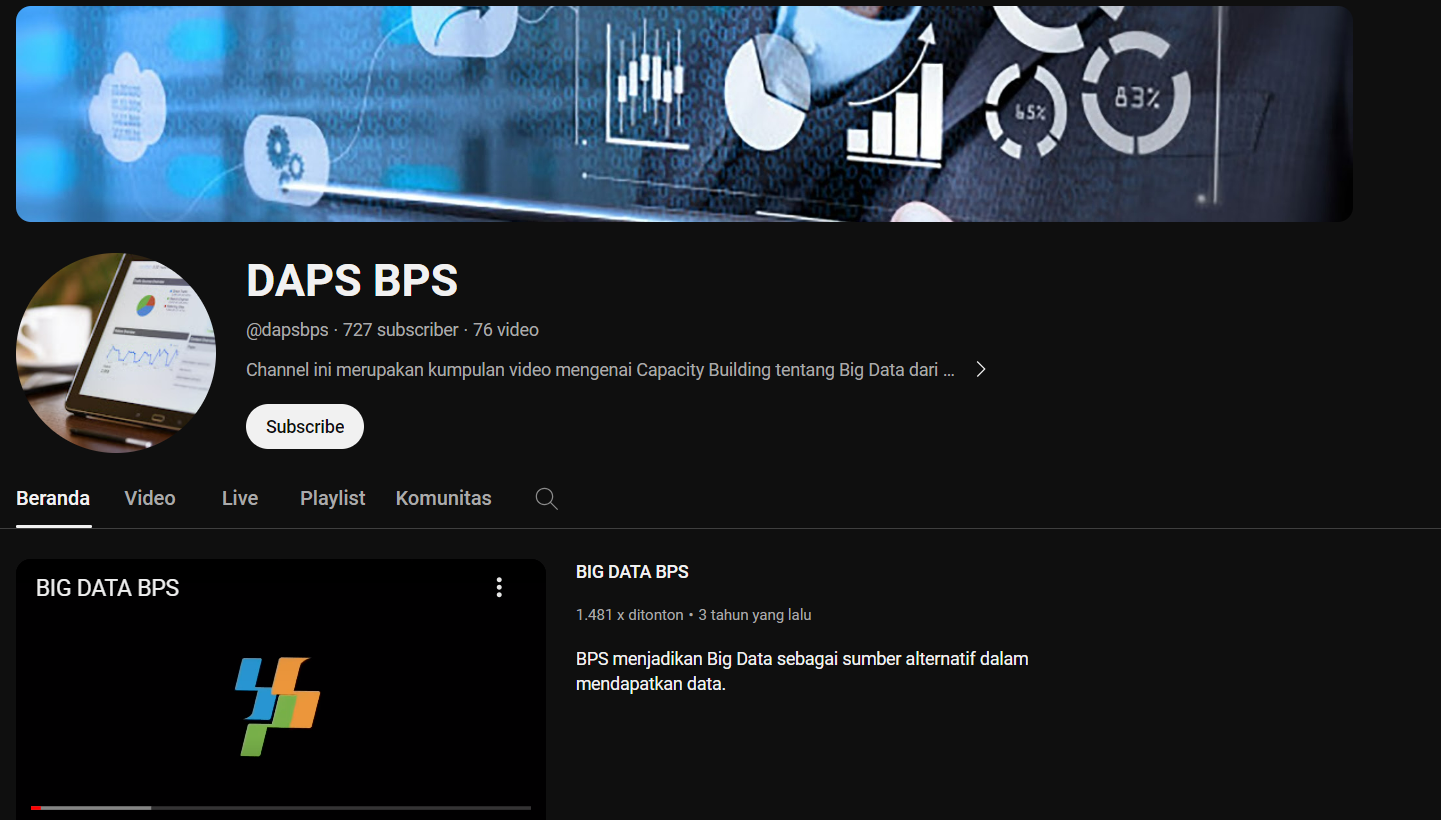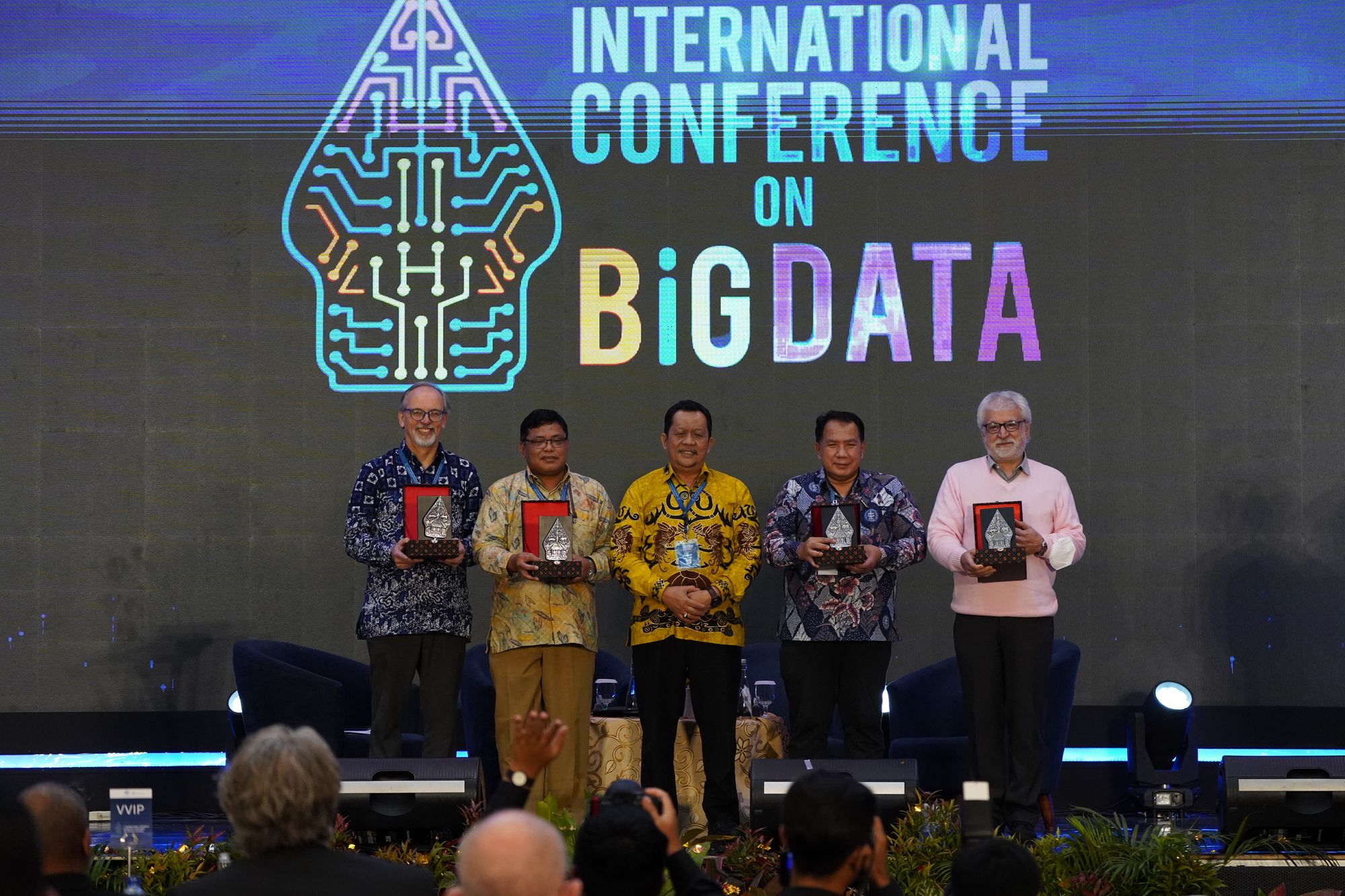Big Data in Politeknik Statistika STIS

STIS Big Data is a project to provide a portfolio of Big Data researches that are conducted by teams consisting of college students, lecturers and researcher staffs of Politeknik Statistika STIS. The research conducted by the college students are parts of the academic activities held in Politeknik Statistika STIS which is conducting research and development of knowledge and technologies to support statistical activities in national and international level. Founded in early 2019, our vision is to be a part of big data analysis world.
Big Data in BPS-Statistiscs Indonesia

Satistics Indonesia - BPS has undertaken the comprehensive collection of data from diverse sources, encompassing censuses, surveys, and administrative data compilations. In this context, the incorporation of big data represents a novel data source that has the potential to enhance the accuracy and expediency of the data presented, aligning it more closely with the requirements of end-users. BPS has proactively embarked on an exploratory initiative to investigate the integration of big data in bolstering the existing official statistical framework.Statistics Indonesia - BPS has undertaken the comprehensive collection of data from diverse sources, encompassing censuses, surveys, and administrative data compilations. In this context, the incorporation of big data represents a novel data source that has the potential to enhance the accuracy and expediency of the data presented, aligning it more closely with the requirements of end-users. BPS has proactively embarked on an exploratory initiative to investigate the integration of big data in bolstering the existing official statistical framework. A number of published works have leveraged big data to facilitate this endeavor, including:
- Utilization of Mobile Positioning Data (MPD) for the Estimation of Foreign Tourist Numbers.
- A Comprehensive Review of Big Data in Analyzing the Impact of COVID-19 in the year 2020.
- An In-Depth Analysis of Big Data in the Context of Adaptation to New Societal Norms.
- Furthermore, within the realm of economic statistics, various studies are underway to calculate price and inflation statistics, to develop a myriad of data indicators and area sample frames (known as KSA) pertaining to rice production, to compile statistics on the creative economy, to construct tourism satellite balance sheets, to disaggregate Gross Fixed Capital Formation (PMTB), and to undertake Interregional Input-Output (IRIO) calculations. Concurrently, in the domain of social statistics, the application of big data extends to the computation of labor statistics, the generation of a population mobility index, the assessment of air quality, and the analysis of flight data.
The United Nations Regional Hub for Big Data in Brazil

The United Nations Regional Hub for Big Data in Brazil aims to contribute to the advancement in the use of big data to improve the production of official statistics, promoting the sharing of knowledge and the development of innovative initiatives in Latin America and the Caribbean.
The Hub is based at the National School of Statistical Sciences (ENCE), an academic area of the Brazilian Institute of Geography and Statistics (IBGE). ENCE will coordinate the efforts and contributions from different areas of the Institute in support of the activities of the Regional Hub. Founded in 1953, the ENCE has a long tradition of training and research, working at the undergraduate and graduate levels, in addition to offering e-learning. Ongoing experiences in the Region will help to leverage the mission of the Hub. Various National Statistical Offices are already seeking to enhance the use of Big Data to improve statistical and geoscientific production, in particular, the use of web scraping and satellite images.
The United Nations Regional Hub for Big Data in Rwanda

In May 2019, the National Institute of Statistics of Rwanda (NISR) inaugurated its brand new Training Centre that is designed to be a convenient environment for data access and capacity building. It will also host the NISR Data Science Campus that will be the hub of big data analytics and their applications. The big data hub will be an environment for capacity development activities in new areas of data analysis such as data science, artificial intelligence, machine learning and other big data related techniques, not only in Rwanda, but also in the region.
Given the relevance of the big data hub to Rwanda and Africa, NISR realizes that partnerships and collaboration with other institutions and organizations is needed to achieve its mission. It is in this context that, in March 2020, Rwanda signed a memorandum of understanding (MoU) with the United Nations to operationalize this hub which is expected to start before the end of 2020. Furthermore, the MoU agreed that Rwanda would host the only big data regional hub for Africa.
The United Nations Regional Hub for Big Data in UAE

The main objectives of the Regional Hub in UAE are the facilitation of projects in the use of Big Data and data science for official statistics and SDG indicators, the sharing of knowledge on newly developed methods, algorithms and tools, and the provision of training in the use of Big Data and data science for the community of official statisticians in the Arab region. To this end, the UN Committee of Experts on Big Data and Data Science for Official Statistics will collaborate with the UAE in support of its Regional Hub, which is envisaged to be globally recognized as a collaborative and action-oriented knowledge, technology and innovation hub, which will bring innovative technology and data science methods in the use of Big Data together and will provide a much-needed platform to further the data science projects in UAE and other countries, especially developing countries.

Because of widespread and constant use of telecommunications and other devices driven by innovations in technology, digital information is continuously generated, such as data from: Global Positioning System (GPS) devices, automated teller machines, scanning devices, sensors, mobile phones, satellites and social media. The high volume, high velocity and wide variety of these data, which are commonly referred to as Big Data require new tools and methods for capturing, managing and processing them efficiently.
The Statistical Commission agreed at its 45th session to create the UN Committee of Experts on Big Data and Data Science for Official Statistics (UN-CEBD) to further investigate the benefits and challenges of Big Data, including the potential for monitoring and reporting on the sustainable development goals. In this context, the UN-CEBD and the greater official statistical community recognize the need to adequately address issues pertaining to methodology, quality, technology, data access, legislation, privacy, management and finance, and provide adequate cost-benefit analyses on the use of Big Data.
Statistical Model Development sub-directorate (DAPS)

This youtube channel is a collection of videos about Capacity Building regarding Big Data from BPS experts and outside BPS as well as various activities in the BPS RI Statistical Model Development sub-directorate.
7th International Conference on Big Data and Data Science for Official Statistics

7th International Conference on Big Data and Data Science for Official Statistics is jointly organized by BPS Statistics Indonesia and the UN Global Working Group on Big Data for Official Statistics. The conference is annual event held in different countries and for this time of the year, Indonesia is selected as a host for this prestigious event. For detail information, please visit this link.